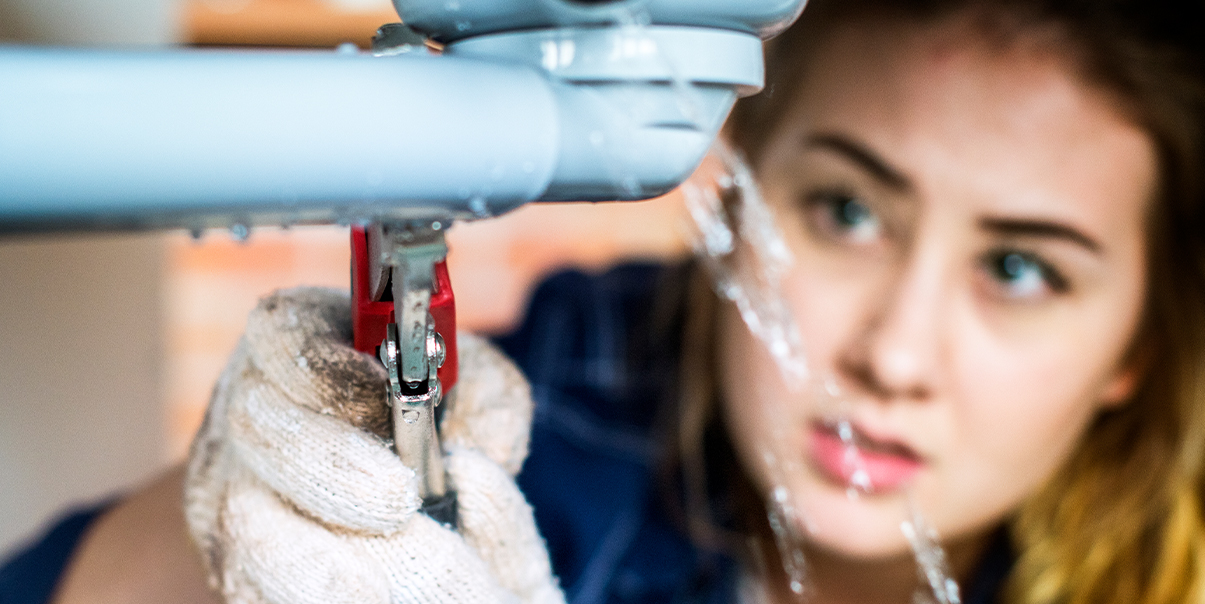Keeping your home’s plumbing system in good working order is essential to avoid inconvenient and costly repairs. By taking a few proactive steps, you can prevent many common plumbing issues and ensure that your system runs smoothly year-round. Here are our top five tips for preventing household plumbing problems.
1. Regularly Check for Leaks and Drips
One of the simplest ways to maintain your plumbing system is to regularly check for leaks and drips. Even small leaks can lead to significant water waste and damage over time. Inspect faucets, showerheads, and visible pipes for any signs of leakage. Pay attention to damp spots, water stains, or unusual musty odors around your home, as these can be indicators of hidden leaks. If you find any issues, address them promptly to prevent further damage.
Key Points:
- Inspect faucets and showerheads
- Look for damp spots and water stains
- Address leaks promptly to prevent damage
2. Proper Disposal of Waste to Prevent Clogs
Clogs are one of the most common plumbing problems, but they are often preventable. Be mindful of what you put down your drains. Avoid disposing of grease, coffee grounds, and food scraps in your kitchen sink. In the bathroom, use drain covers to catch hair and soap scum, which are common culprits of clogs. Additionally, avoid flushing anything other than toilet paper down the toilet. Non-flushable items can cause significant blockages in your plumbing system.
Key Points:
- Avoid pouring grease and food scraps down the sink
- Use drain covers to catch hair and soap scum
- Only flush toilet paper down the toilet
3. Maintenance of Water Heaters
Your water heater is a vital component of your plumbing system, and regular maintenance can extend its lifespan and improve efficiency. At least once a year, drain the water heater tank to remove sediment buildup. This buildup can reduce the efficiency of your water heater and lead to costly repairs. Additionally, check the temperature setting and ensure it is set to around 120 degrees Fahrenheit to prevent scalding and save energy.
Key Points:
- Drain the water heater tank annually to remove sediment
- Set the temperature to around 120 degrees Fahrenheit
- Regular maintenance improves efficiency and extends lifespan
4. Seasonal Checks for Outdoor Pipes
Outdoor pipes are particularly vulnerable to temperature changes and can freeze during cold weather, leading to burst pipes and significant water damage. In the fall, disconnect and store garden hoses, and insulate outdoor faucets and exposed pipes. During the winter, keep an eye on the weather forecast and take action to protect your pipes during extreme cold snaps. Letting a trickle of water run from indoor faucets can help prevent freezing.
Key Points:
- Disconnect and store garden hoses in the fall
- Insulate outdoor faucets and exposed pipes
- Let a trickle of water run during extreme cold to prevent freezing
5. Know When to Call a Professional
While many plumbing maintenance tasks can be handled by homeowners, some issues require professional expertise. If you encounter persistent clogs, major leaks, or problems with your water heater that you cannot resolve, it’s time to call in a professional plumber. Regular professional inspections can also help identify potential issues before they become major problems, saving you time and money in the long run.
Key Points:
- Call a professional for persistent or major plumbing issues
- Regular inspections can identify potential problems early
- Professional help saves time and money in the long run
Conclusion
By following these five tips, you can prevent many common household plumbing issues and keep your system running smoothly. Regular maintenance, proper disposal habits, and timely professional assistance are key to avoiding inconvenient and costly plumbing problems. Keep your home safe and your plumbing system efficient with these proactive measures.

